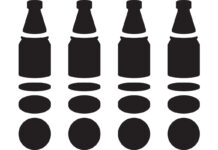Retailers given a year to cut out disposable vapes

SCOTTISH ministers have confirmed that disposables vapes will be banned on 1 April 2025.
This gives retailers across the country a little over a year to adjust stores to fall in line with the new regulations set out by Westminster last month.
Circular Economy Minister, Lorna Slater said: “Legislating to ban the sale and supply of single-use vapes fulfils a Programme for Government commitment to reduce vaping among non-smokers and young people and take action to tackle their environmental impact.
“The public consultation demonstrated that there is strong support for tougher action on vaping. From causing fires in waste facilities to more than 26 million disposable vapes being consumed and thrown away in Scotland in the past year, single-use vapes are a threat to our environment as well as to our public health.
“These proposed changes to the law demonstrate our absolute commitment to further improve the wellbeing of communities and protecting our beautiful natural environment.”
ScotGov has laid out the details towards what does and does not constitute a vape in its new ‘The Environmental Protection (Single-use Vapes) (Scotland) Regulations 2024‘ report stating a disposable vape is considered “any vape which is not refillable, not rechargable or not refillable and not rechargeable”.
Any retailer found to be supplying the devices, offering to supply or has in their possession to supply a single-use vape could face a summary conviction to a level 5 fine, the maximum level for a fine of an unlimited amount of money. The sellers could also face up to two years in prison along with the fine.
These regulations are now open for a public consultation, allowing people and organisations the chance to respond to the new rules. This consultation closes on 8 March.
The public consultation on the matter can be found here.
Industry members have warned ScotGov about its speedy response to the matter here and urged to take on industry consultations on the matter.
James Lowman, chief executive at the Association of Convenience Stores, said: “The Scottish Government should not rush to implement the disposable vapes ban without proper consultation with industry and a clear understanding of the impact the illicit vaping market, which already accounts for one third of the overall UK vaping market.
“The lack of a published impact assessment reveals the scant consideration of how vapers will respond to this change in the law, and how it will swell the already huge market in illicit vapes.
“We need a clear plan in place for communicating this policy change to consumers without undermining smoke free targets, as our research also suggests that 8% of disposable vape users will return to tobacco products when the ban is introduced.”
Undoubtedly a concern for retailers who follow regulations and now face having to find space in store to move the vaping section to as well as finding a new use for cabinets already in store.
And this comes as another blow to retailers’ finances from the government after DRS was delayed last year, leaving retailers who made shopfitting changes completely out of pocket.
There is also the concern of illicit trading and how the counterfeit vape market could stand to benefit from this ban.
Vape Club has highlighted the ease of access there is to the illegal market in its recent report which found that nearly 16,000 illicit vape devices were seized in Scotland alone in 2023. The number for the UK stood at a staggering 1.57million, a 19 times increase from the number in 2020.
And Westminster is currently under scrutiny by industry bodies after it was revealed that retail-focussed consultations were not considered towards the final decision to ban vapes.
The Scottish Grocers’ Federation (SGF) has highlighted that the UK government’s consultation stated that ministers “have not considered the views of any organisation or individual that disclosed links to the tobacco industry”.
In response to this, Pete Cheema, chief executive at the SGF, said: “SGF represents the whole of the Scottish convenience sector, from the smallest city shop to essential rural stores that are lifelines for their community. Yet our views have been entirely ignored.
“It is true that our members sell tobacco products, but that makes their concerns even more valid – whether it’s an increase in illicit trade, more potential for flashpoints when serving customers, or the practicalities of delivering these policies in-store.
“Ministers received 28,000 responses to their consultation, which were analysed at break-neck speed, yet the views of SGF and many Scottish retailers have been expunged from the records. That’s not right, or democratic.”






















